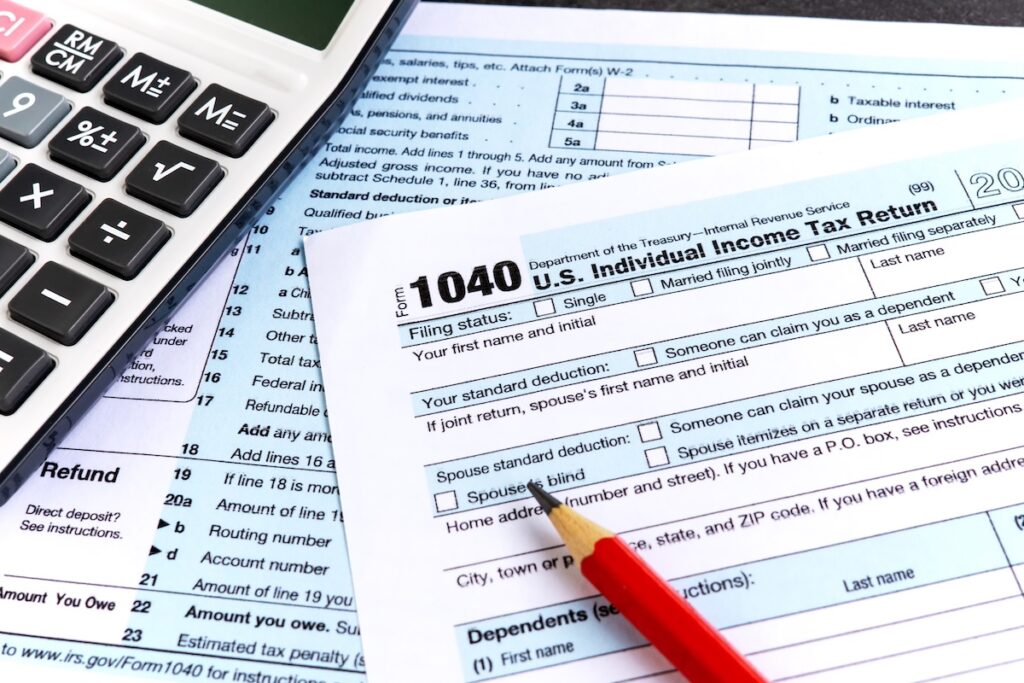FinCEN Form 114 Explained: Reporting Foreign Accounts
July 25, 2025 | Foreign Bank Account | 6 minute read
Expat Tax Blog. Tax Tips for US Americans abroad.
Updated October 16, 2025
 All blogs are verified by Enrolled Agents and CPAs
All blogs are verified by Enrolled Agents and CPAs
Updated October 16, 2025

If you’re a US citizen living abroad with foreign bank or financial accounts, you may need to file FinCEN Form 114, commonly known as the FBAR (Foreign Bank Account Report). It’s not part of your regular tax return, and missing it can result in steep penalties even if you didn’t know you were supposed to file.
In this guide, we break down everything US expats need to know about filing FinCEN Form 114, including who needs to file, what accounts are covered, and how to stay compliant.
What Is FinCEN Form 114?
FinCEN Form 114, commonly known as the FBAR (Foreign Bank Account Report), is a reporting form, not a tax form, used to disclose foreign financial accounts to the US Treasury.
It’s filed separately from your tax return and not submitted to the IRS. Instead, it’s submitted directly to the Financial Crimes Enforcement Network (FinCEN), a bureau of the Treasury Department.
The Form falls under the Bank Secrecy Act (BSA) and exists to help the US government detect offshore financial activity. It’s about transparency, not taxation.
FinCEN Form 114 Requirements
If you’re a US citizen or Green Card holder with foreign financial accounts, you must file FinCEN Form 114 if the aggregate maximum value of those accounts exceeds $10,000 at any point during the calendar year. Meaning the threshold is based on the total across all accounts, not any one account alone.
For example, if you hold $4,200 in a savings account in Spain and $7,000 in a French investment account, your combined $11,200 exceeds the threshold and must be reported.
You also need to report accounts you don’t personally own but can access or control. These include: joint accounts, business accounts, or accounts where you hold signatory authority.
Foreign Financial Accounts You May Need to Report:
- Personal or joint bank accounts held abroad
- Foreign brokerage or investment accounts
- Business accounts under your control
- Mutual funds based overseas
- Life insurance policies with a cash value
- Crypto accounts held on non-US platforms
Accounts Generally Not Subject to FBAR:
- US accounts holding foreign securities
- Correspondent or Nostro accounts
- Foreign accounts owned by governments or financial institutions
- Military banking facility accounts abroad
- Certain retirement accounts like IRAs
If you meet the threshold, even briefly during the year, you’re expected to file. It’s not about taxation, it’s about transparency. And if you’re unsure, it’s safer to file than to overlook a requirement.
Deadlines (and the Built‑In Extension)
The FBAR is due April 15 yearly, with an automatic extension to October 15. You don’t have to file a separate extension request. Missed it? See the “If You Missed the Deadline” section below.
Penalties for Not Filing FinCEN Form 114
Missing an FBAR filing can lead to serious consequences, even if no tax is owed. The IRS distinguishes between non-willful and willful violations, each carrying different penalty structures.
Non-Willful Penalties
If the IRS determines your failure to file was accidental, such as not knowing about the requirement, it may be treated as non-willful. In these cases, the penalty can still be up to $10,000 per missed annual report. You may avoid penalties entirely if you can show reasonable cause and acted in good faith.
The IRS used to apply non-willful FBAR penalties per unreported account, which could result in very large fines.
Reusable Callout-Box
*For design changes please notify Dev Team.
*For bullet points please wrap text accordingly: (ul) *placeholderText* (ul)
One bulletpoint is defined by `(li)` > (ul) (li)bulletpoint1 (li)bulletpoint2 (ul)
FBAR Penalty Rules Changed in 2023
In Bittner v. United States (2023), the US Supreme Court ruled that these penalties apply per annual report, not per account. This means that even if you missed several accounts in a single year, the penalty is typically limited to $10,000 per year—unless the violation is willful, in which case the IRS can assess penalties per account.
Willful Penalties
If the IRS determines your failure was intentional or that you acted with reckless disregard, the penalties increase sharply. The IRS can impose the greater of $100,000 or 50% of the highest balance in each unreported account, for every year the FBAR wasn’t filed. These are assessed per account, and in extreme cases, criminal charges may also apply.
How Does the IRS Know?
You might wonder how the US government finds out about foreign accounts. The answer lies in the Foreign Account Tax Compliance Act (FATCA), which requires many foreign financial institutions (FFIs) to report accounts held by US citizens directly to the IRS.
In short, your foreign bank may report your account, even if you don’t. The IRS can match this data against your filings, and if there’s a discrepancy, it could trigger a notice, audit, or penalties.
FBAR vs. FATCA (Form 8938)
While both the FBAR and FATCA aim to improve financial transparency and combat offshore tax evasion, they have different filing requirements, thresholds, and purposes. Here’s how they compare:
| Criteria | FBAR (FinCEN 114) | FATCA (Form 8938) |
|---|---|---|
| Filed with | FinCEN (Treasury) | IRS (with your tax return) |
| Threshold | $10,000 aggregate (any time in the year) | Single: $200k (End of Year)/ $300k (anytime) Married: $400k (EoY)/ $600k (anytime) |
| What it covers | Foreign accounts | Broader financial assets, including stock in foreign companies, foreign pensions, trusts, and partnership interests |
| Purpose | Transparency / BSA compliance | Tax enforcement & disclosure |
FinCEN Form 114 Instructions
You’ll file FinCEN Form 114 (FBAR) online through the Treasury’s BSA E-Filing System. No login or account is required.
Step 1: Begin a New Individual FBAR
Choose “Prepare and submit” under the Individual FBAR section.
Step 2: Enter Your Personal Information
Fill in your:
- Full name
- SSN or Taxpayer ID
- Date of birth
- Current address (US or foreign)
Step 3: Report Each Foreign Account
For each account, provide:
- Name of the financial institution or platform
- Maximum value during the year (in USD)
- Account number
- Account type (e.g., bank, brokerage, pension)
If you have 25 or more accounts, you have the option to simply check the box on the form instead of listing each one. Unlike Form 8938, where all accounts must be listed individually, the FBAR allows this shortcut, but you must still retain full records in case the IRS requests them later.
Step 4: Sign and Submit
Review your entries, sign electronically, and submit the form. Save the confirmation and a PDF copy for your records.
Reusable Callout-Box
*For design changes please notify Dev Team.
*For bullet points please wrap text accordingly: (ul) *placeholderText* (ul)
One bulletpoint is defined by `(li)` > (ul) (li)bulletpoint1 (li)bulletpoint2 (ul)
Tip: If you don’t know the exact account balances, use your quarterly or year-end statements to estimate the highest value for the year.
Records You Should Keep
To stay compliant and prepared in case of an audit or inquiry, it’s important to maintain proper documentation for at least five years after filing your FBAR.
This includes records of the maximum balance of each account for the year (converted to USD), bank or account statements, and any documentation that shows ownership or signature authority. You should also keep a note of the exchange rate used, typically based on the US Treasury’s year-end exchange rate.
Here’s a quick checklist:
- Maximum account balances (in US dollars)
- Account statements or summaries
- Documents showing account ownership or signatory authority
- Exchange rate source and conversion used
If You Missed the Deadline
If you’re filing your FBAR after the deadline, don’t panic, there’s a section on the form where you can explain the delay. You’ll be asked to select a reason from a dropdown menu. Valid explanations include:
- You didn’t know you were required to file
- You thought your account balance was below the threshold
- You misunderstood what qualifies as a foreign account
- You were waiting on missing bank statements
- You had trouble accessing the online filing system
If your mistake was non-willful and you’re correcting it on your own, penalties may be waived, especially when the delay was due to reasonable cause. Taking action sooner rather than later can make a big difference.
Catching Up on Past FBARs
If you missed filing an FBAR in a previous year, or several, you still have options to catch up without facing harsh penalties. The IRS offers two main paths, depending on your situation:
Delinquent FBAR Submission Procedures: If you filed your tax returns but forgot the FBAR, you can use this process to submit the missing forms without penalty. You’ll need to include a brief explanation of why you missed the deadline.
Streamlined Filing Compliance Procedures: If you failed to file both your tax returns and FBARs, this program allows you to catch up, assuming the failure was non-willful. It involves filing three years of tax returns and six years of FBARs, along with a statement certifying that your non-compliance was due to a good-faith misunderstanding.
Both programs are designed for taxpayers who were non-willful in their mistakes. If you’re unsure which applies to you, it’s wise to speak with a qualified tax advisor who can guide you through the process.
Reusable Callout-Box
*For design changes please notify Dev Team.
*For bullet points please wrap text accordingly: (ul) *placeholderText* (ul)
One bulletpoint is defined by `(li)` > (ul) (li)bulletpoint1 (li)bulletpoint2 (ul)
Important: You must act before the IRS contacts you.
If they reach out first, you may lose eligibility for the Streamlined Procedures or other penalty-reducing provisions.
Don’t wait—while you still qualify for penalty relief, see our Streamlined 2025 Guide to learn more.
File FinCEN Form 114 Before It’s Too Late
Filing the FBAR is an essential part of staying compliant as a US expat, even if you don’t owe any tax. If you’re unsure whether your accounts qualify or you’ve fallen behind, taking action before the IRS contacts you can make all the difference.
At MyExpatTaxes, we make FBAR filing straightforward. Whether you need step-by-step support or help catching up through the Streamlined Procedure, we’ve helped thousands of Americans abroad get fully compliant, quickly, affordably, and with peace of mind.
Frequently Asked Questions
Content of the Accordion Panel
Not unless your crypto is held in a foreign account that functions like a financial institution (e.g., a custodial exchange with fiat features). FinCEN may expand FBAR rules to cover more crypto in the future. When in doubt, seek professional guidance.
Content of the Accordion Panel
Yes. Signature or control authority over a foreign account can trigger the FBAR requirement, even if you don’t own or benefit from the funds.
Content of the Accordion Panel
No. The FBAR is strictly a reporting obligation and does not result in any tax being assessed. It’s about disclosing your foreign financial accounts to the US Treasury, not paying taxes on them.
Content of the Accordion Panel
Yes, minors are subject to the same FBAR requirements as adults if their foreign account balances exceed the threshold. A parent, guardian, or other legally responsible person can file on their behalf.
Content of the Accordion Panel
Yes. The $10,000 threshold applies if your total foreign account balance exceeded that amount at any point during the calendar year.
Content of the Accordion Panel
You should use the US Treasury’s official year-end exchange rate to convert foreign currency to US dollars. This rate is published annually and is the standard reference for FBAR filings.
Content of the Accordion Panel
No. The FBAR is a reporting obligation, not a tax. Even if you owe no US taxes because you pay tax in another country, you still may need to file if your foreign accounts exceed the threshold.
Content of the Accordion Panel
Probably not. The FBAR is not part of your federal tax return (Form 1040) and must be filed separately through the BSA e-filing System. MyExpatTaxes.com tax software will automatically include your FBAR without additional fees.
Content of the Accordion Panel
Yes, in many cases. Foreign pensions, cash-value life insurance, and investment accounts may count as reportable financial accounts under FBAR rules.
See Why US Expats From Around the World Love Us!
Easily file regardless of how complex your US expat tax situation is.
Been here before? Sign in!


Written by Nathalie Goldstein, EA
Nathalie Goldstein, EA is a leading expert on US taxes for Americans living abroad and CEO and Co-Founder of MyExpatTaxes. She contributes to Forbes and has been featured in Forbes, CNBC and Yahoo Finance discussing US expat tax.
July 25, 2025 | Foreign Bank Account | 6 minute read







